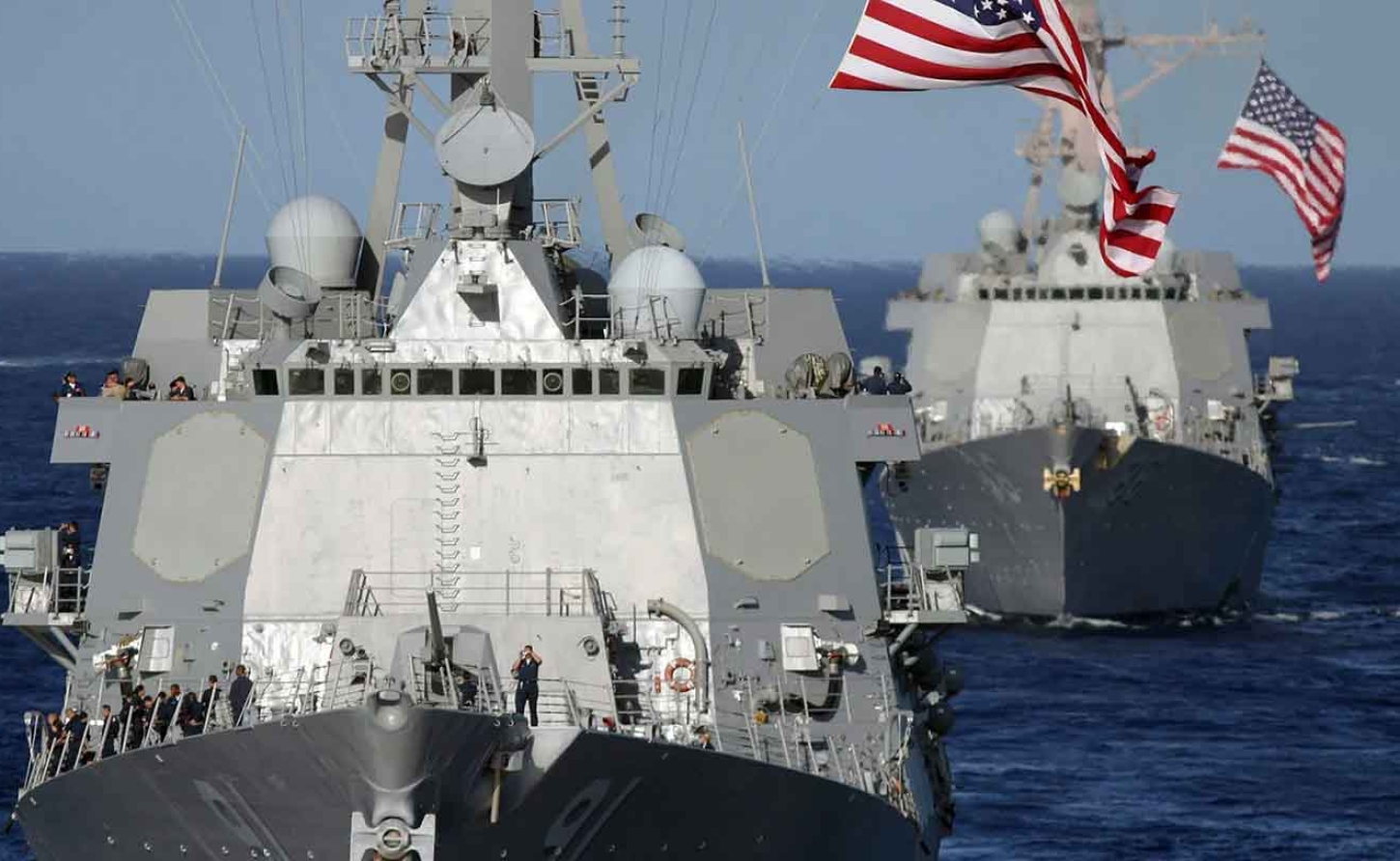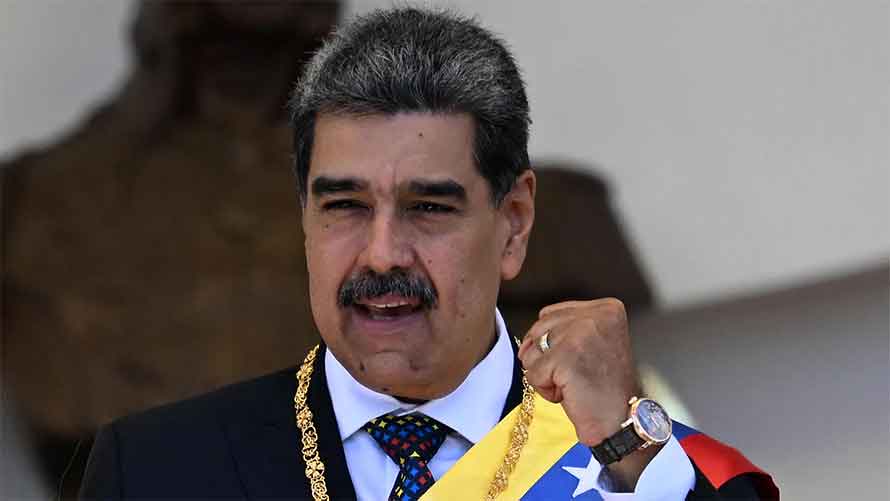CARICOM | Caribbean Leaders Draw Red Line as US Warships Circle Venezuela

Regional voices denounce military escalation as "zone of peace" principle faces gravest threat in decades
MONTEGO BAY, Jamaica, August 22, 2025 - The sight should send chills through every Caribbean capital: eight American warships, bristling with guided missiles and carrying 4,500 Marines, cutting through turquoise waters toward Venezuela's coastline.
What the Trump regime frames as a routine anti-drug operation looks increasingly like the most serious threat to Caribbean stability since the Cold War—and regional leaders are not staying silent.
A Flotilla of Intimidation
The naval armada Trump has dispatched represents one of the largest US military deployments in Caribbean waters in recent memory.
Three Aegis-class destroyers—the USS Gravely, USS Jason Dunham, and USS Sampson—are accompanied by an amphibious assault squadron including the USS Iwo Jima, USS San Antonio, and USS Fort Lauderdale, vessels specifically designed for landing Marines on hostile shores.
The message could hardly be more explicit.
Washington justifies this massive show of force by branding Venezuelan President Nicolás Maduro as "one of the world's largest drug traffickers," allegedly heading the Cartel de los Soles cocaine trafficking organization.

Yet the evidence supporting these explosive allegations remains conspicuously thin. Venezuelan Interior Minister Diosdado Cabello has dismissed the Cartel de los Soles as an "invention" of the US, while Defense Minister Vladimir Padrino López has "categorically" rejected Washington's "ridiculous" accusations.
More tellingly, Mexico's President Claudia Sheinbaum—hardly a Maduro ally—has stated there is no evidence supporting Trump's claims linking the Venezuelan leader to Mexico's Sinaloa cartel.
Caribbean Voices of Resistance
As American warships steam south, Caribbean leaders are drawing a line in the sand. Former Trinidad and Tobago Prime Minister Stuart Young captured the regional mood with stark clarity: "CARICOM and our region is a recognised zone of peace and it is critical that this be maintained."
His warning carries the weight of decades of Caribbean diplomacy built on non-interference and respect for sovereignty.
The response has transcended traditional political divisions. Ten ALBA-TCP member nations—including Antigua and Barbuda, Dominica, Grenada, Saint Lucia, and Saint Vincent and the Grenadines—issued an extraordinary joint condemnation, warning that "the U.S. military deployment in Caribbean waters, disguised as counter-drug operations, represents a threat to the peace and stability of the region and constitutes a flagrant violation of international law."
Even Colombia's Gustavo Petro, no friend to Maduro, issued a scathing rebuke: "The gringos are mad if they think invading Venezuela will solve their problem. They are dragging Venezuela into a Syria-like situation, with the problem that they are dragging Colombia too."
The Credibility Gap
Trump's drug war rhetoric becomes even more suspect when measured against the available evidence. The United Nations' latest World Drug Report conspicuously fails to identify Venezuela as a primary transit country for narcotics—a glaring omission if Maduro truly commands a hemisphere-spanning trafficking empire.
Meanwhile, the US's own internal assessments have historically not prioritized Venezuela as a drug trafficking hub.
Venezuelan Foreign Minister Yvan Gil captured this contradiction perfectly: "Washington's accusing Venezuela of drug trafficking reveals its lack of credibility and the failure of its policies in the region. While Washington threatens, Venezuela steadily advances in peace and sovereignty."
The timing is equally revealing. These dramatic accusations emerge just as Trump faces pressure to deliver on campaign promises about border security and drug interdiction—making Venezuela a convenient scapegoat for America's intractable addiction crisis.
High Stakes for Regional Sovereignty
What troubles Caribbean leaders most is the precedent being set. If the United States can deploy a naval armada against any government it deems illegitimate or criminal, where does that leave smaller Caribbean nations that might find themselves in Washington's crosshairs over trade disputes, political differences, or resource extraction rights?
The deployment has already triggered a dangerous escalation. Maduro announced the mobilization of 4.5 million militia members across Venezuela, declaring: "No empire will touch the sacred soil of Venezuela, nor should it touch the sacred soil of South America." With both sides now posturing for conflict, the risk of miscalculation grows by the hour.
Beyond the Gunboat Diplomacy
Caribbean leaders understand what Washington seemingly doesn't: sustainable security cannot be imposed at gunpoint. The region's remarkable post-independence stability has been built on principles of dialogue, mediation, and respect for sovereignty—values that Trump's gunboat diplomacy threatens to shatter.
The American antiwar group CodePink put it succinctly: "These aggressive policies seek to extend US dominance in Latin America, no matter the human cost. The people of Venezuela, like the people of the United States, deserve peace, dignity, and sovereignty, not threats, blockades, and warships."
As American destroyers patrol international waters just outside Venezuelan territorial limits, the Caribbean faces a moment of truth. Will the region allow itself to become collateral damage in Trump's political theater, or will CARICOM leaders find the courage to defend the "zone of peace" that has served them so well?
The warships may belong to Washington, but these are Caribbean waters—and Caribbean voices are making clear that militarization is not welcome. In a region that has worked so hard to move beyond the proxy conflicts of the Cold War, that message has never been more vital.
-30-
